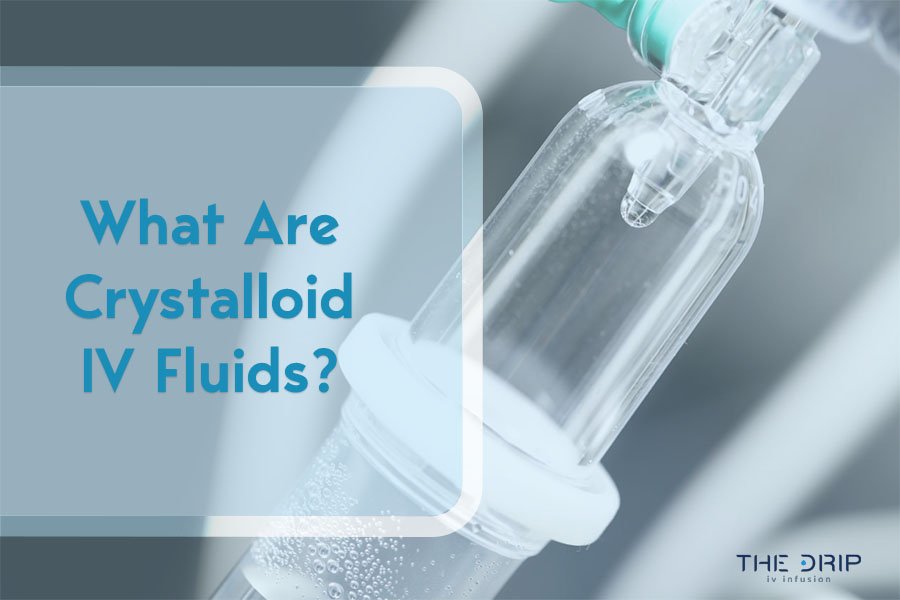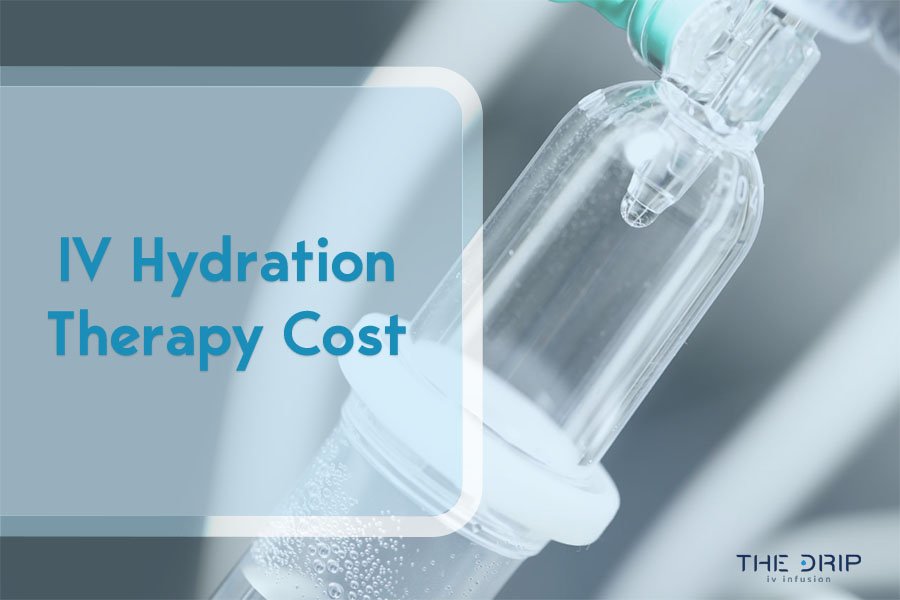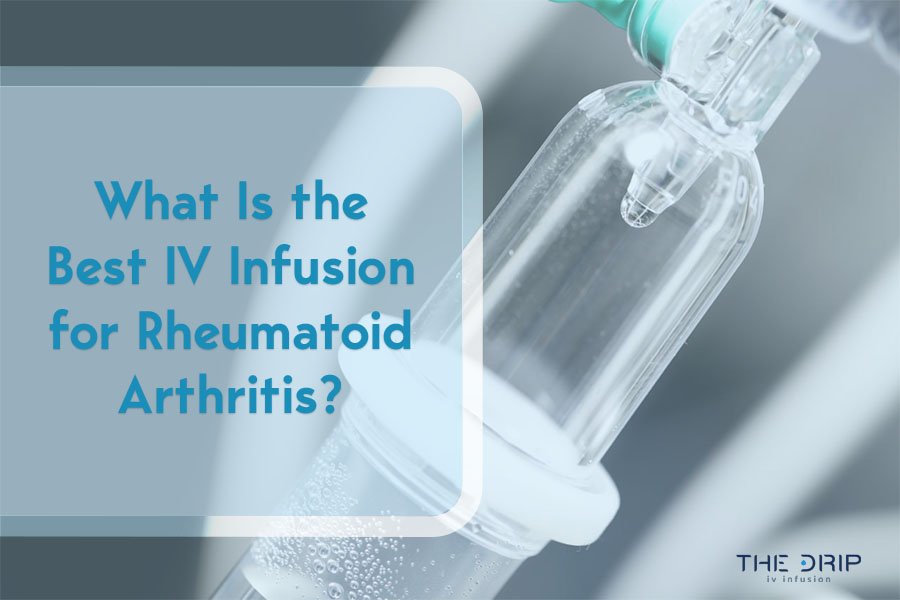Our bodies need essential nutrients such as vitamins and minerals to work in a proper way. Yet, getting the right amount is not always possible through diet. For this reason, many people opt for IV therapy. So, what is IV therapy?
This medical procedure aims to replenish your body and improve your immunity. It is convenient, time-effective, and might provide fast results. In this post, you will learn about the IV therapy meaning, including its effects and benefits.
What Is IV Therapy?
An intravenous therapy, IV, is a common medical procedure and a vital part of modern medicine. It involves the intravenous administration of medications, nutrients, and fluids directly into a person’s bloodstream.
Its main purpose is to restore and maintain electrolytes, nutrients, and a fluid balance in the patient’s body. Compared to oral medications, it might enable rapid fluid delivery and quick results.
The reason is that the fluids bypass the digestive tract, offering maximum absorption. This means the body can absorb all ingredients before the kidney flushes them out.
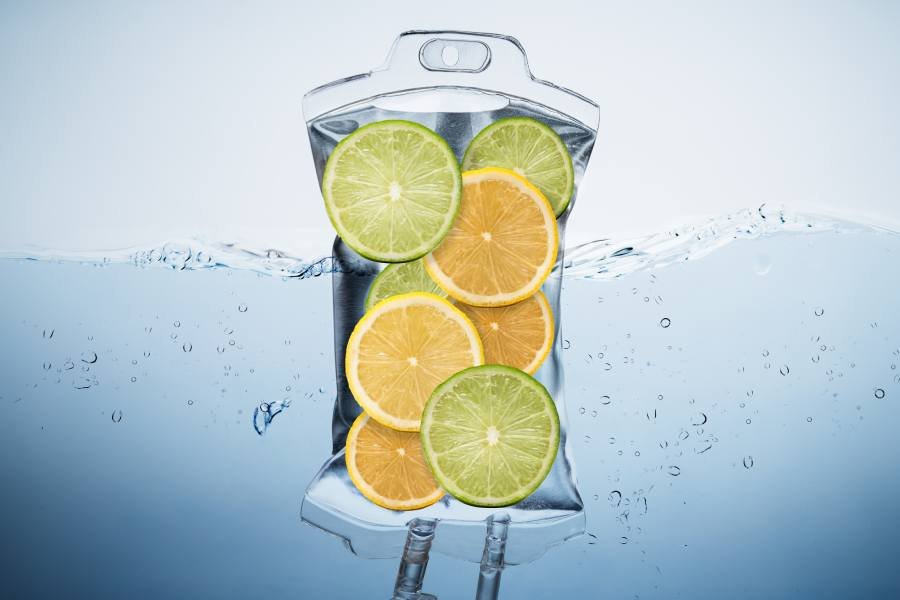
Source: shutterstock.com/ Photo Contributor: Andrey_Popov
IV Therapy Explained
To perform IV therapy, healthcare professionals must have appropriate qualifications. Qualifications typically include but are not limited to past critical care experience such as working in the Emergency Room or the Intensive Care Unit. IV therapy involves administering fluids into the patient’s body to provide benefits.
Before starting the treatment, the medical provider evaluates the patient’s medical history. In some cases, they also require the patient to take a blood test. Then, they find a vein to insert the cannula. The following step is to sanitize the area.
The healthcare professionals provide the treatment via an IV line to the vein. They insert a cannula into the patient’s vein and attach a tube with an IV fluid bag. The bag contains the ingredients which drip down the tube.
The rate and the quantity of intravenous fluids depend on the patient’s age, weight, and medical condition. They vary from simple solutions to a specific blend of nutrients and medications tailored to the patient’s needs.
Once the treatment finishes, they disconnect the IV and place a cotton ball and medical adhesive tape on the area.
How long does IV therapy last?
In general, the intravenous treatment lasts from 30 to 60 minutes. Yet, the timeframe depends on the severity of the patient’s needs. The patients might notice results from 12 to 24 hours, and, in some instances, patients may feel immediate relief.
The effects of such a procedure depend on the individual. In general, they last from 1-2 weeks.
What is IV therapy used for?
This type of procedure is valuable when oral intake is impossible. This includes patients who are not able to take oral medications. It is also suitable for patients experiencing severe nausea or vomiting who need immediate intervention.
Such a therapy is often used in healthcare facilities. Yet, in recent years mobile IV therapy has become increasingly popular. At The Drip IV Infusion, we offer mobile IV infusions based on the patient’s needs. They are performed in relaxed settings, such as the patient’s workplace or home.

Source: shutterstock.com/ Photo Contributor: Numstocker
What Is IV Therapy Good For?
Individuals request IV therapy for a variety of reasons. Patients can get an intravenous injection aiming to boost immunity and improve their energy. The blend of ingredients might be beneficial for hangovers and morning sickness relief.
Patients suffering from migraines and those on their weight loss journey may also benefit from an intravenous infusion.
The medical procedure also involves medication administration. The intravenous drip might contain various medications based on the patient’s needs. This includes pain relievers and antibiotics.
The IV drip content goes straight into the patient’s bloodstream, so IV therapy allows them to be effectively absorbed and distributed. Hence, the procedure should enable precise dosing and fast action.
IV Therapy Uses
IV therapy may address various health issues, such as the following:
Immunity function
Hydration levels
Hangover and morning sickness relief
Cold and sickness
Performance recovery
Weight loss
Digestion problems
Dehydration
A common reason why many people opt for IV therapy is dehydration. Dehydration occurs when one’s body loses more water and electrolytes than it takes in, which can be dangerous for children and adults. It causes uncomfortable symptoms, which is why dehydrated patients should require suitable treatment.
Some of the dehydration signs include:
Dry tongue and mouth
Extreme thirst and fatigue
Feeling drowsy and lightheaded
Irritability and tiredness
Dark-colored urine with a strong smell
The fluids from IV Therapy might increase the hydration level in the body and alleviate these symptoms. They can replace lost blood volume and correct imbalances such as dehydration or severe diarrhea.
Intravenous fluids such as The Classic Myers cocktail of nutrients might provide rapid recovery. It contains Vitamin C, B12, B-complex, zinc, magnesium and other nutrients for rehydration and replenishment.
People suffering from dehydration also lack electrolytes in the body, which an IV procedure provides.
What Types of Nutrients Are Present in IV Therapy?
The content inside an IV bag depends on the patient’s needs. They contain vitamins, minerals, antioxidants, electrolytes, and medications. Some of the common ingredients include:
Saline – saline is often found in an IV bag; made out of salt and sodium chloride, it might help with the body’s hydration
Vitamin C – this vitamin is essential for the immunity system and may help the body to fight illnesses
Vitamin B complex – the vitamin B complex might help improve metabolism and nerve function; the vitamins may also have positive effects on the skin, nails, and hair.
Magnesium – the mineral that supports a healthy metabolism; it might also help with stress and prevent migraines
Amino blend – the amino blend may convert fatty acids into energy

Source: shutterstock.com/ Photo Contributor: Seventy Four
IV Therapy Effects
By providing necessary fluids, the intravenous infusion may provide various potential effects, including:
Boost immunity
Enhance mood
Increase energy levels
Promote calmness and relaxation
Ease migraine symptoms
Balance blood sugar
Relieve pain
Support weight loss
Help in athletic recovery
The amino acids present in the IV bags might also provide an energy boost, while the nutrients might help with weight loss. The treatment should restore nutrient levels, and the antioxidants present may protect your body from free radicals.
Immunity boost
A nutrition deficit might cause effects such as diarrhea, tongue inflammation, fatigue, and more.
The blend of vitamins and minerals available in an IV nutrition therapy may boost the patient’s immunity. The immunity system has an important role as it protects your body from infections and germs, and substances that can make you ill.
Enhance mood
The nutrients such as vitamin B12 often present in IV bags may enhance the patient’s mood and improve their sleeping patterns.
This nutrient also plays a vital role in many health aspects. It affects red blood cell formation, the production of DNA, nerve function and more.
Increase energy levels
By containing nutrients such as amino acids, IV vitamin therapy may provide the body with a boost of energy. An amino blend may also help prevent the breakdown of the muscles.
Promote relaxation
While IV therapy might increase your energy, it may also relax the muscles and promote quality sleep.
Specifically, the magnesium often present in the IV treatment may help with anxiety, insomnia, and inflammation. This mineral might support stress management, and it may be beneficial for bone and heart health. This mineral should also help in the prevention of migraines and headaches.
Ease migraine symptoms
Migraine is a neurologic condition that manifests by throbbing pain on one side of the head. It is associated with symptoms such as light and sound sensitivity, nausea, and vomiting. A migraine episode is more intense than a headache and lasts longer.
It causes uncomfortable symptoms and can affect one’s quality of life. That said, IV therapy might help ease them by targeting certain migraine triggers and several processes in the body. Dehydration may lower blood pressure and cause migraine.
A deficiency in vitamins and minerals might also cause migraine, and IV therapy may address that. It can also contain medications to relieve the pain and might provide fast results, which is vital for people suffering from migraines.
Balance blood sugar
The amino acids available in the IV therapy bag might help relax the blood vessels, while certain medications, such as Semaglutide, may balance the blood sugar and reduce blood pressure.
Relieve pain
By administering medications like Toradol, IV therapy might ease inflammation and pain. When it comes to chronic pain, IV therapy also includes nutrients such as magnesium, vitamin C and vitamin B with the goal of providing pain relief.
Weight loss
The process of losing weight is challenging for many people. For this reason, many opt for an IV treatment to help their efforts and get the desired outcome.
Aside from nutrients, IV cocktails for weight loss often contain other ingredients. They include L-carnitine and alpha-lipoic acid, each targeting weight loss from a different aspect.
Athletic recovery
With a specific blending of ingredients, including zinc, Taurine, and vitamin B6, IV therapy may be beneficial for professional athletes. It may improve muscle recovery and improve stamina. Such a blend might be of benefit for them before and after their event.
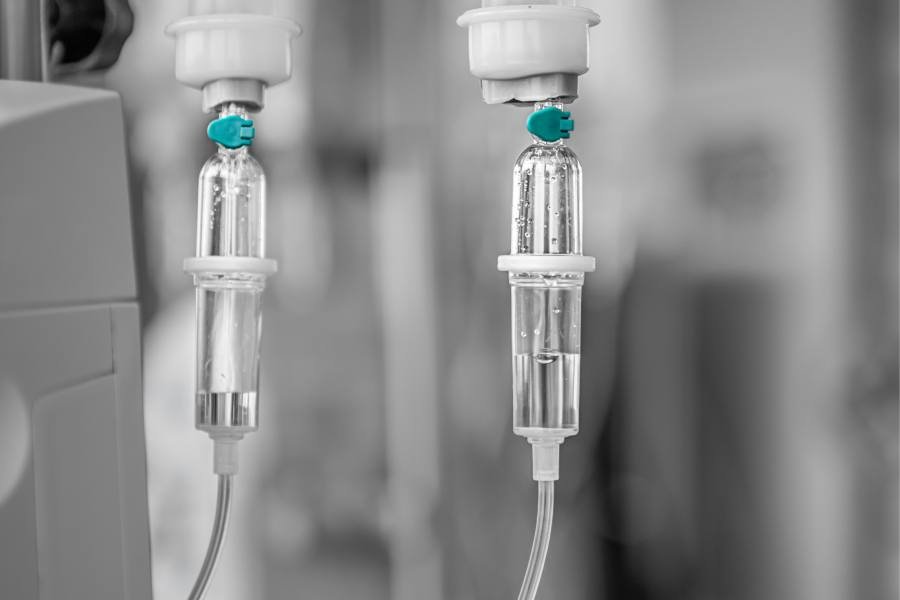
Source: shutterstock.com/ Photo Contributor: Leka Sergeeva
IV Therapy Benefits
Compared to oral medications, intravenous fluids bypass the digestive tract. By doing so, the patient might experience a quick recovery. This is essential for patients who need fast relief, especially if they deal with migraines or dehydration.
The IV treatment may also provide convenience whether the patients need a single or regular treatment. You can also request mobile IV therapy from The Drip IV Infusion services by completing a simple questionnaire online.
Once you make a request, the healthcare professionals will contact you. They will arrive at your home or workplace for a comfortable medical procedure.
The medical procedure is also cost and time-effective, and the ingredients are all-natural. Moreover, the patients can customize their package based on their needs by requesting certain add-ons.
How Often Should You Receive IV Therapy?
People opt for IV therapy for various reasons, a common one being receiving nutrients for health and wellness.
In fact, statistics show that many people don’t get the necessary nutrients their body needs. If you have decided to give such treatment a go but don’t know how often you should receive it, there are several factors to consider.
The answer depends on your goals and needs as a patient. For instance, if you are taking IV therapy to restore the nutrients in your body, you can receive it every week. For overall wellness, you can opt for an IV infusion treatment once in a while, such as once a month.
That said, people dealing with medical conditions may need weekly treatment depending on the healthcare professional’s recommendations.
Are There Any Risks That Come With IV Therapy?
In general, an IV treatment is considered to be safe and well-tolerated by many patients. The professionals make sure the patients are comfortable during the therapy.
The ingredients used in the IV bags go through testing before they are available for the patients. That said, if you have any medical condition or are taking other medications, consult with the healthcare professional during the medical evaluation. They will provide you with all the necessary details to determine whether IV therapy is a good option for you.
Some patients may experience light bruising and soreness. Side effects like allergic reactions are rare in this type of treatment.
Who Can Use IV Therapy?
In the past, an IV treatment was used only for patients with dehydration or nutrition deficit. Nowadays, there are minimal restrictions, such as heart failure or kidney disease when it comes to the usage of IV therapy.
IV therapy companies design their IV drips for healthy individuals who want to nourish their bodies and improve their immunity. People can get them even if it is not medically necessary.
Conclusion
IV therapy has been around for a long time, and recently, it has become popular between athletes and celebrities.
But what is IV therapy? If you have been wondering about what kind of benefits it provides, you can find the necessary information in this post.
This medical procedure provides fluids, nutrients, and medications to the patient’s body. It might provide quick and long-lasting effects and a variety of potential health benefits.


